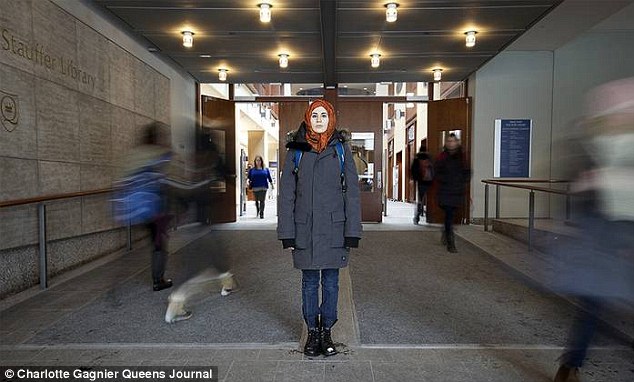
Rasa News Agency reports - A Canadian college student recently conducted a social experiment to see if people treated her differently if she wore a hijab - a traditional Muslim veil that covers a woman's head and chest - and what she discovered was a bit unexpected.
Anisa Rawhani, a third-year student at Queens University in Ontario, wore the traditional Muslim garb for 18 days in January as she worked at the university's library, visited stores and restaurants near the campus and as she did volunteer work with local children.
According to Rawhani - who conducted the experiment to see if people in her community were racist towards minority groups - she noticed that people actually treated her more kindly and with more respect than when she didn't wear the hijab.
Rawhani, who is not Muslim, wrote about her experience wearing traditional Muslim clothing in the March edition of the Queen's Journal, where she works as a copy editor - the article is titled 'Overt to Covert.'
'At first I thought I was just imagining things. There's no way this is actually happening,' Rawhani told the Whig.com.
'I went with my hijab and people were very nice, people were polite, parents would shake my hand, so the experience was all across the board in Kingston.'
In some cases, she says, she would go out with friends who weren't wearing any identifying religious symbols and she was treated much nicer than they were.
'There was this excess (of niceness) that I would experience that I couldn't account for,' she said. 'Like really going the extra mile like smiling broadly and being so so polite, which I've never experienced before. It was a stark contrast that was going on that threw me for a loop.'
Rawhani discussed her findings with a psychology professor at her univertsity - she calls the interesting phenomenon an overcompensation.
'It can be that someone actually does harbour racist tendencies but doesn't want to look racist to others so they overcompensate in that way,' she says.
She also says that it could stem from people who might think they have a bias but are trying to suppress it by being overly accommodating to people of other races or religions.
'In general, just from my interactions, I think people honestly believe in equality and have those values but they just don't know how to interact with minorities,' she says.
Rawhani, who is of Iranian descent, was inspired by a similar experiment done in the United States, where women were asked to wear a hijab for a day and watch how people treated them.
'The desire came from wanting to understand better because there is so much tension around the idea of covering,' she says. 'I wanted to understand why women in Islam cover and also how it can actually be difficult in our culture to be covering.'
'There's so many misconceptions and people think you're oppressed and there are also issues of racism, that's what prompted it,' she continued.
'People, culture and religion arn't concepts you can understand on your own. Rather it's through dialogue that we generate understanding and respect between people,' Rawhani concluded.
Daily Mail